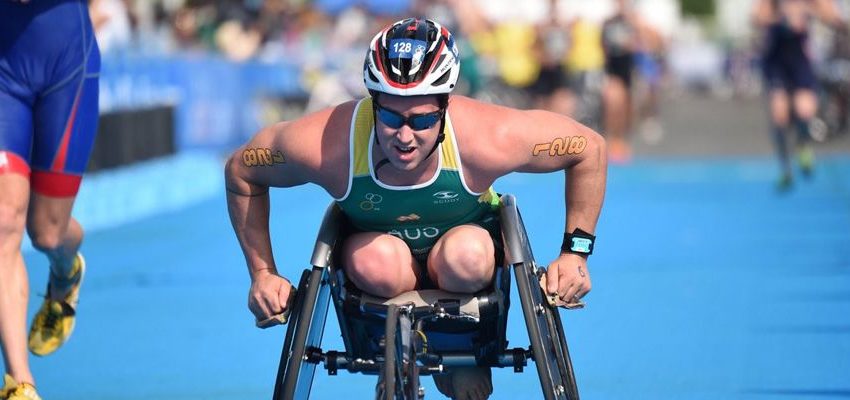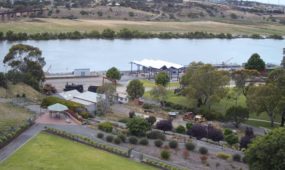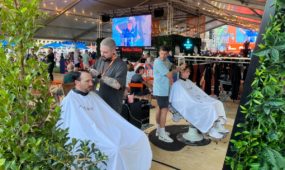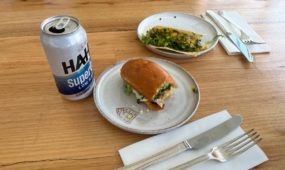Scouting out accessible travel destinations made easy
Tourism
South Australian company The Good Scout has launched a travel directory to help people with mobility issues enjoy exploring Australia.

Sign up to receive notifications about new stories in this category.
Thank you for subscribing to story notifications.

When Scott Crowley begins his gruelling triathlon at the Commonwealth Games on Saturday, his journey will not only include years of hard training, but also the logistical nightmare of travelling in a wheelchair, with a handcycle, a track chair and a wheel bag — on top of the usual luggage – from Adelaide to the Gold Coast.
Fortunately, the Commonwealth Games has been inclusive for years and has accessible venues and accommodation, but this is not always the case for other travellers.
Having travelled extensively as an athlete and for pleasure with his wife Clair and their two young children, Scott has seen first hand how a lack of information about accessibility has stopped people with disabilities from traveling independently.
“People all travel for the same reasons,” says Scott, who was paralysed in a snowboarding accident 15 years ago. “People in wheelchairs just need a little more information about what’s on offer at the destination.”
This lack of information prompted the couple to launch The Good Scout, an accessible travel directory with trusted listings on accommodation, attractions and experiences for people with limited mobility.
“I wish something like this (The Good Scout) existed when we were travelling in Europe in 2008, it would have saved a lot of heartache. Having a trusted resource for the accessible travel community is invaluable and we hope that people gain confidence through us and start travelling further afield and chasing their ultimate travel dreams rather than always settling for the familiar,” says Scott.
The couple are testing their business plan in South Australia with a beta version of the site to prove their concept to the tourism industry. They look to launch the Australia-wide version in July.
Clair says they are filling the site with listings of South Australian hotels and attractions they know are suitable and then will demonstrate to these businesses that listing with their site is worth a paid subscription.
“If they get four or five nights accommodation from us that they’d usually not get, that will pay for a premium listing,” says Clair.
According to statistics from Tourism Australia, worldwide there are over one billion people with a disability including over 11 million people in the United Kingdom and 54 million in the United States.
Clair says this adds up to an $8 billion opportunity in Australia, taking into consideration that people with disabilities usually travel with someone else.
“The average travelling party is 2.5 people, so if the tourism operation isn’t accessible to one person in the group, then the whole group will take their business elsewhere,” says Clair.
The market isn’t limited to people who use wheelchairs, it includes anyone who wants to travel independently but has limited mobility.
“The Good Scout benefits anyone with access needs,” says Clair. “Our ageing population, families with prams, people with temporary injuries and their travel companions, not only people who use wheelchairs.”
In South Australia the problem isn’t the supply of accessible accommodation or tourist attractions, it’s getting these businesses to tell travellers what they have on offer.
“People simply don’t know about places that are actually accessible,” Clair says.
Clair says that independent travellers want to know about the destination, the physical aspects such as the suitability of toilets, and the customer service.
“The service is the deal breaker, all else can be overcome,” she says, which makes a trusted listing and rating on the site valuable to both the traveller and the tourism business.
The couple plan to introduce booking services once they prove the concept.
“We take the guesswork, worry and hesitation out of accessible travel planning by providing all the detailed information a wheelchair traveller and their travel companions will ever need,” Clair says.
Their concept won last year’s social innovation prize in the The Australian echallenge, winning the couple a place at the University of Adelaide’s ThincLab incubator, which has offices in Adelaide, Singapore and France.
Jump to next article



